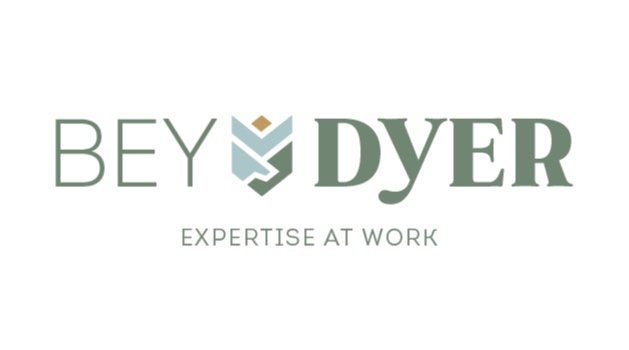Upskilling and Reskilling: Trends in employment as artificial intelligence integrates into the world of work.
While the pandemic fueled demand for skilled workers has tapered to more normal levels, employers continue to rely on these skilled workers to meet the current shifting market demands. This comes at a time that also sees employers learning to adapt to the integration of artificial intelligence in the workplace. Upskilling and reskilling are both important concepts in the modern workforce that focus on improving and updating employee skill sets to stay relevant and competitive in the job market. So, what is the difference?
Upskilling refers to the process of learning new skills or upgrading existing skills to enhance job performance and career prospects. This could involve acquiring new technical skills, learning about new technologies, mastering new tools or software, or expanding knowledge in a particular area to keep up with industry trends. Upskilling is important when considering a current or prospective employee’s ability to adapt to changes in the job market or stay ahead of the competition. If executed properly, upskilling can significantly increase an employee’s value to their employer.
Reskilling, on the other hand, refers to the process of acquiring new skills in a completely different field or industry. This could be necessary when job roles or industries are disrupted by technological advances such as AI, market shifts, or external factors. Reskilling is often seen as a pathway to transition into a new career, explore new opportunities, and stay relevant in an ever-changing economy.
Both upskilling and reskilling are essential for individuals to thrive in the current job market where skills are becoming outdated at a rapid pace as new technologies continue to emerge. Employers are also increasingly recognizing the importance of investing in the upskilling and reskilling of their workforce, which if done properly, can lead to improved productivity, innovation, and adaptation to changing business needs.
Employers should have a vested interest in upskilling their employees for several reasons:
Increased productivity: Upskilling employees can lead to productivity increases as they become more proficient in their roles and can perform tasks more efficiently. Employees with up-to-date skills are better equipped to handle challenges and deliver high-quality work.
Enhanced competitiveness: In today’s rapidly changing business landscape, companies need to stay ahead of the curve to remain competitive. For a comparatively small investment towards upskilling their workforce, employers can ensure that their employees have the skills and knowledge needed to adapt to new technologies, trends, and market demands.
Retention and loyalty: Providing opportunities for upskilling shows employees that the company is invested in their professional development and growth. This can boost employee morale, job satisfaction, and loyalty – ultimately leading to increased retention rates and reduced turnover.
Innovation and adaptability: Employees with diverse skills are better positioned to drive innovation within the organization. Upskilling can help employees think creatively, adapt to change, and contribute to new ideas that could benefit the company’s growth and success.
Future-proofing the workforce: As industries evolve and new technologies emerge, employers need a workforce that can quickly adapt and learn new skills. Upskilling employees ensures that they are prepared for future challenges and opportunities, enabling the company to remain relevant and agile in rapidly changing business environment.
Executed properly, upskilling employees is a win-win situation for both employers and employees. It helps companies maintain a competitive edge, drive innovation, and retain top talent while also offering employees opportunities for growth and advancement.
Employers may want to reskill their employees for several reasons:
Adaptation to changing industries: Industries are constantly evolving due to technological advancements, market shifts, and other factors. In order to stay competitive and relevant, employers may need to reskill their employees to ensure that they have the necessary skills to meet the changing demands of the industry.
Cost savings: Hiring new employees with the required skills can be costly and time-consuming. By reskilling existing employees, employers can save on recruitment and onboarding expenses while retaining valuable institutional knowledge and experience within the organization.
Employee retention: Providing opportunities for reskilling can boost employee morale and motivation by demonstrating the organization’s commitment to investing in their professional development. This can lead to higher levels of job satisfaction, loyalty, and retention among employees.
Increased productivity and efficiency: Reskilling employees can improve their performance and productivity by equipping them with the new skills and knowledge. Employees who are up to date with the latest techniques and technologies can work more efficiently and effectively, leading to improved outcomes for the organization.
Future-proofing the workforce: As job roles and industry requirements continue to change, reskilling employees can help future-proof the workforce by preparing them for new opportunities and challenges. Employees who are regularly developing new skills are more adaptable and better equipped to handle change.
Reskilling employees is a strategic investment for employers to ensure that their workforce remains agile, competitive, and capable of meeting the evolving demands of the industry. By providing opportunities for employees to learn new skills and stay current with industry trends, employers can strengthen their talent pool while driving innovation and return on investment.
In summary, artificial intelligence is reshaping the workforce and creating new opportunities for reskilling and upskilling employees. By proactively investing in employee development and providing opportunities to learn new skills, employers can leverage the evolving power of artificial intelligence technology while empowering their existing workforce to thrive in the digital age.
For more information on how reskilling and upskilling is working for large corporations visit The Global Opportunity Forum. For small businesses you may want to discuss workforce development options with your local Chamber of Commerce and industry groups. Other agencies may offer small business reskilling and upskilling initiatives, such as the National Skills Coalition or UpSkill America.
